Elisabeth City, the Harbor of Hospitality
Elisabeth City, NC, 18maj 2017
In English below
Känslan av Norrlands avfolkningsbygd var påtaglig där vi tog vår kvällspromenad i Elisabeth City. För första gången sedan vi startade resan fick vi uppleva vad marknadskrafterna kan innebära för vanliga människor när det går dåligt. Många av husen längst Main Street var i stort behov av renovering och omvårdnad. Trädgårdarna vilda, oskötta. Bilarna gamla, rostiga. Hopplöshet och vanmakt blev det betående intrycket när vi pratat med golvläggaren John som vi träffade efter promenaden, i hamnen. Han satt och drack en öl på sin illa åtgågna motorbåt, där inombordaren pajat för länge sedan och där en utombordare istället satt fastsatt på badplattformen. Han åkte ut ibland på sjön och badade, fiskedon hade han inte råd att köpa. Brevid låg flera andra vrak till båtar som ägarna inte längre mäktade med att vare sig fixa till eller behålla. Största inkomstkällan här är jordbruk men de små lantbruken har sålts till stora industriella kooperativ som knappt behöver några anställda, bara maskiner. Likadant med timmeravverkningen. "The money is gone from here", sa John bittert. "Politikerna är "köpta" av lobbyisterna. Kapitalet har flyttat, firmor lägger ner sina verksamheter, vanliga människor får flytta, man har inte råd att rusta sina vackra hus, den fattiga vita och mest svarta befolkningen har tagit över centrum. Det var så tydligt.
För att göra ont värre så drabbades Elisabeth City av ett stort bakslag när orkanen "Matthew" drog över landet Förra hösten. Hela kanalen the Dismal Swamp Channel stängdes (en viktig genväg upp till Chesapeake Bay) och alla båtar som brukade lägga till här (och bidrog till ekonomin) tog en annan väg. Man hoppas nu att allt skräp ska vara borttaget till hösten och att kanalen ska öppna igen.
Nästa dag var det bättre. Vi blev purrade av båtgrannen Jack som undrade om vi ville åka med och handla. Alla affärer med något nyttigt i (som mat) finns nästan alltid utanför städerna. Gärna, sa vi och fast vi inte behövde något särskilt kom vi ändå hem med många kassar. Hur går det till? Nå, elektrisk vattenkokare behövde vi faktisk, men allt det andra... På vägen till och från affären (ca 30min med bil) såg vi lite bättre vyer med rustade hus och välmående (kooperativa?) gårdar.
Det verkar vara samma som i Sverige; alla flyttar till storstäderna där arbete finns. En politik som gagnar alla, även landsbygden, verkar inte ha hög prioritet här heller!!
Museumet nära hamnen hade två utställningar; den ena var med fantastiska svartvita foton på temat fattiga svarta lantbrukare (en del foton tagna så sent som 2001), en helt utrotningshotad art som levde (lever) ett hårt liv och idag finns bara 17000 friägande svarta bönder kvar I USA. Känns igen från vårt eget land med småböndernas öde...
Den permanenta utställningen handlade om North Carolinas historia fram till idag. Fantastisk och informativ utställning. Staden (Elisabeth City) var grundad 1801 och blev mycket rik tack vare Dismal Swamp Channel, grävd av slavar.

The worlds biggest (?) factory for huge blimps (zeppelinare) Is here, close to Elisabeth City. Here they also have the nations biggest coast guard base.
For the first time since we started the trip, we experienced what market forces might mean to ordinary people when things go bad. Many of the houses along Main Street were in great need of renovation and nursing. The gardens wild, unscathed. The cars are old and rusty. Hopelessness became the lastning impression when we talked to John, a carpenter, that we met in the harbor after the walk. He sat drinking a beer on his badply neglected powerboat, where the inboard had ceased long time ago, and an outboard mounted on the transom as replacement. He tok the boat out occasionally on the lake but he could not afford to buy fishing tackle. Tied up nearby was several other wrecks that the owners no longer could afford to keep. Main income in the area comes from farming. The small farms have been sold to large industrial cooperatives, which do not need hardly any employees, just machines. Similar is with the timber harvesting. "The money is gone from here," John said bitterly. "Politicians are bought by the lobbyists". The money has moved, companies shut down their businesses, ordinary people move away, they can not afford to maintain their beautiful houses, the poor white and (mostly) black people have taken over the city center. It was so clear and so sad. We do recognice this "process" from our own country....
In order to make bad even worse, Elisabeth City suffered a huge backslash when Hurricane Matthew crossed the country. The entire Dismal Swamp Channel was closed (an important shortcut up to Chesapeake Bay) and all the boats that used to come here (and contribute to the economy) takes a different route. It is hoped that all debris will have be removed in the fall and the channel will open again.
The museum near the harbor had two exhibitions; One of them was with amazing black and white photos, the theme was "poor black farmers" (some photos taken as late 2001), that lived (live) a hard life and today only 17,000 independent black farmers remain In the whole nation.
We recognize this fate of the farmers from our own country.....
The permanent exhibition was about North Carolina's history until today. Fantastic and informative exhibition. Elisabeth City was founded in 1801 and became very rich thanks to the Dismal Swamp Channel, made by slave labour.

The wonderful southern flower Magnolia, grows on huge trees and they smell sweet
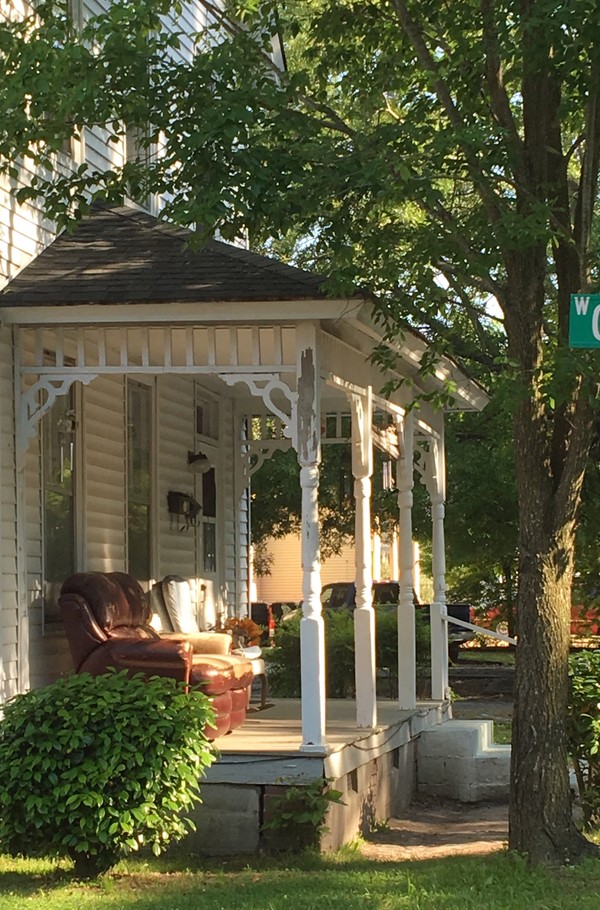
Not a rocking chair this time :)
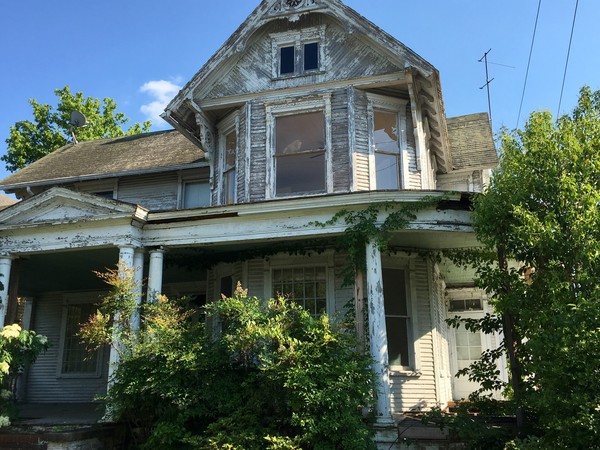
Many of the old houses looked like this, in need for care.

But a few was still in a very nice shape

One of the countless churches in town, Baptist, Methodist, Catholic, Protestant... and more! Guess they still are quite religious and go to church regularly as part of their lifestyle.
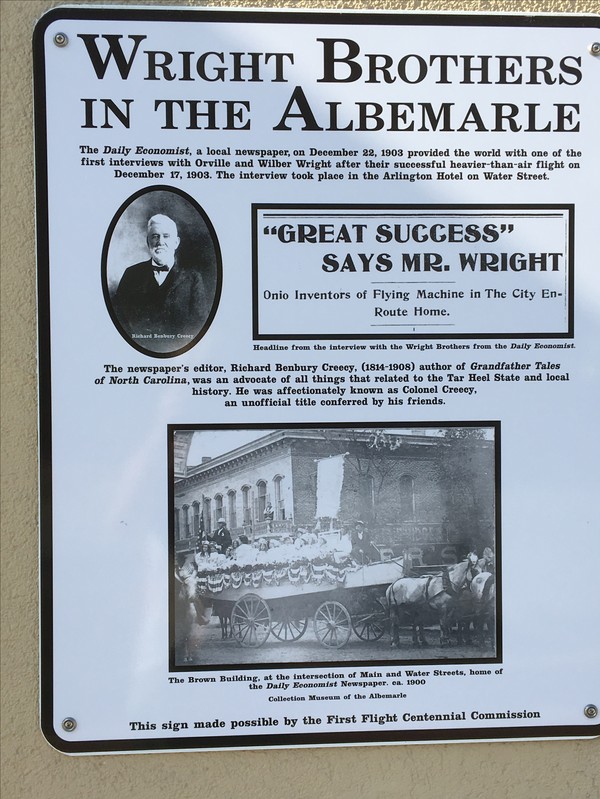
The first flight with a motor driven aircraft was in Kitty Hawk...
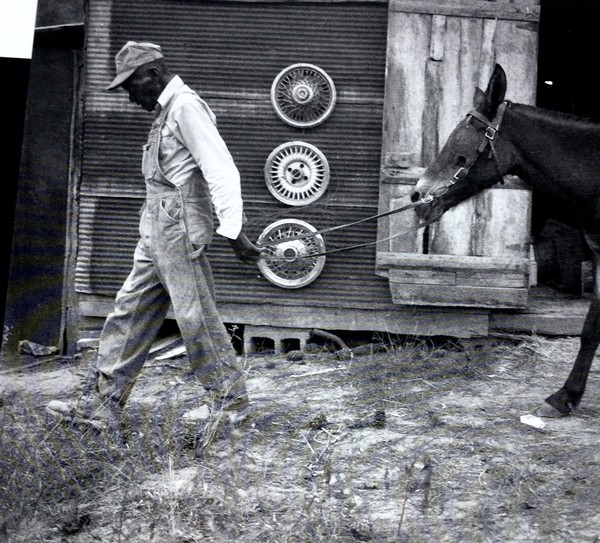
Black farmers fate in the fantastic exhibition at the museum in Elisabeth City.
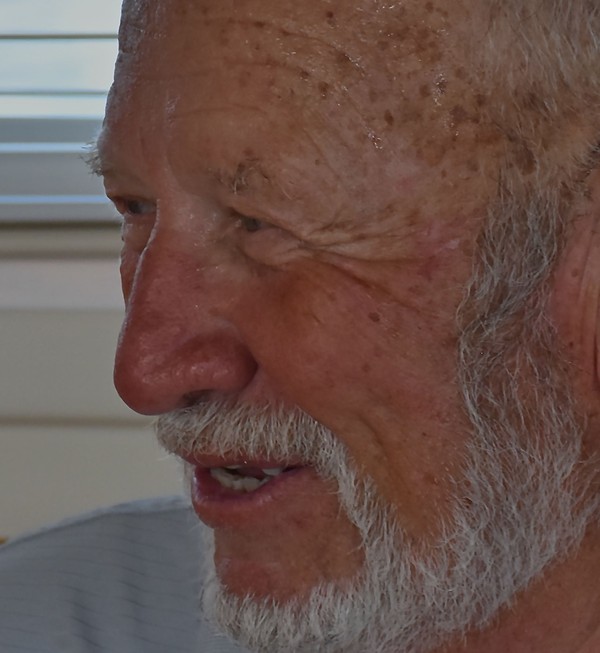
Captain Jack on M/Y Nearly Perfect, a boat neighbour. He and his wife helped us tie the boat and invited us over to their Hatteras. We got a lot of valuable information from them, as experienced Loopers. We must get a Looper flag in order for other Loopers to recognize us, they said. Very important, both socially and a means to get information and even help if you need it.
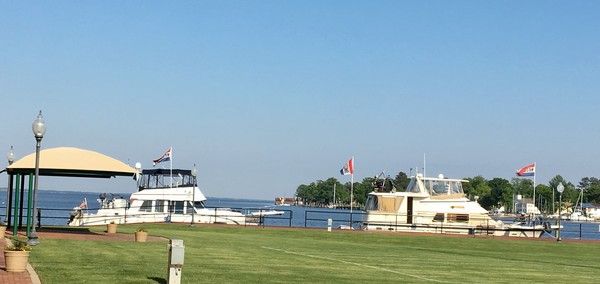
Almost Perfect and Ambika Explorer in Elisabeth City town harbor. It's free of charge, they want to be a sailors first choise to come here to the "harbor of hospitality", once created by two guys (now passed away). They were called the Rosebuddies because they always greeted the sailors with a rose from their garden and invited everyone over for a get together at their house. Imagine!
Kommentarer
Trackback
